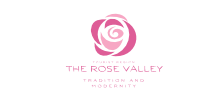"Here it is, enclosed to the west and north by high hills and rocky ridges, it stands on the border between the Stara Planina and the plain, resting its back on the Balkan, facing Thrace..." (K. Konstantinov) Our ancestors created the settlement at the crossroads and this is one of the great advantages of Sliven, which played an important role in its past and present development.
Sliven occupies a special place in the economic life of Bulgaria. The first steps of Bulgarian industry were made here, thanks to circumstances of a geographical and historical nature, combined with the entrepreneurship of Dobri Zhelyazkov from Sliven. In 1834, he established the first textile factory on the Balkan Peninsula. This had a huge impact on the later development and modern appearance of Sliven.
An invariable mark of the town's long history is spirituality. A cult centre since antiquity, the town developed these functions in a new sense during Early Christianity and the Middle Ages. Sliven is among the most significant spiritual centres in Bulgaria during the National Revival. It is the birthplace of the first Bulgarian poet Dobri Chintulov, of the first Bulgarian artist who received an academic education, Dimitar Dobrovich, of many prominent Bulgarians whose names are associated with the development of Bulgarian and European science and culture, educational work and economic development in the Bulgarian lands. In 1827, a school was opened in Sliven, and in 1860, the Zora community centre was established. Today's contribution of Sliven to the cultural treasury of Bulgaria is also noteworthy. Many names of prominent contemporary artists and scientists are associated with the town.
Far back in the first centuries of Ottoman rule, Sliven and the Sliven region became the centre of the haidouk movement – one of the most common forms of resistance against Turkish slavery. This gave rise to the fame of Sliven as the town of a hundred voivodes. It is known as the birthplace of the national heroes Hadzhi Dimitar and Panayot Hitov.
